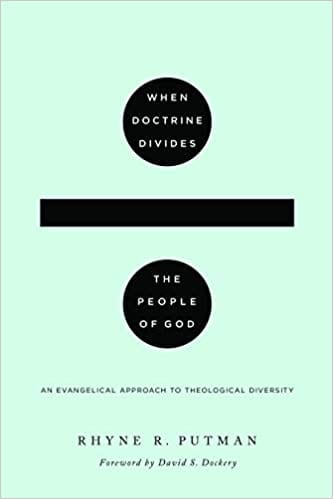BEN: You, quite rightly, take a strong stance on Sola Scriptura in this book, but it becomes quite clear that Scripture doesn’t answer all our questions, especially when it comes to praxis. For example, the NT does not tell us directly whether it’s right to baptize infants and small children or not. One reason this is so is because Christianity, as a missionary movement begins with a posture that all need to embrace the Gospel, the Gospel is for Jews and Gentiles alike, and so all begin as outsiders to the community of faith. Because the NT is dealing with first generation issues, and only some second-generation ones, the issue of what to do with the children of committed believers is barely raised at all. Perhaps 1 Cor. 7 provides some clues (the child of a believer is already hagios), but there are no clear directives about the practical implications of such a statement. As I’ve pointed out at some length in my little book Troubled Waters, it is the Didache in fact that first really tells us how to baptize people, what sort of water to use etc. So, the question becomes does Sola Scriptura just mean the Bible is our norm and starting point, but many things need to be amplified, further developed as time goes on? So ‘tradition’ becomes a necessity as well, as long as it is consistent with the Bible or does not contradict it. Yes? How would you assess this problem?
RHYNE: Sola Scriptura does not mean nuda Scriptura or “solo Scriptura.” Following the late great Baptist theologian James Leo Garrett, I think we can say suprema Scriptura when we are talking about the relationship between Scripture and other sources like tradition, reason, experience, etc. Scripture stands supreme over other sources, but it these other sources are of value to our theological formation. Yet Scripture alone is an inspired source, an inerrant source, and an infallible source. Scripture alone is the norming norm over these other sources. But you are right, Scripture does not address all of our questions—especially in matters of ecclesiology. That’s why I feel like abductive reasoning plays such a large role in what we do. We need to make the educated guesses about what the church did or is supposed to do from the evidence we have.













